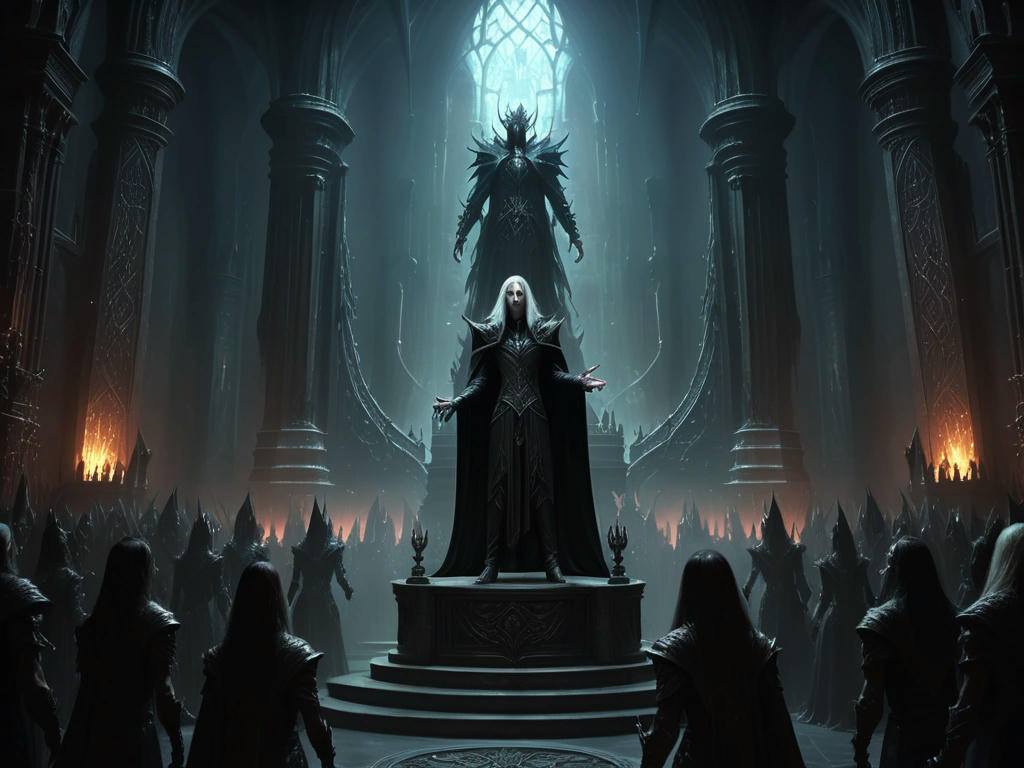In what might be the most peculiar piece of unpublished Middle-earth lore, a recently discovered manuscript fragment tells the improbable tale of Elrond Hubbard, a lesser-known elf who attempted to establish the first organized religion-for-profit in Mordor during the Second Age.
The story, written in Tolkien's distinctive handwriting on the backs of Oxford examination papers, follows Hubbard's journey from a disillusioned resident of Rivendell to an ambitious spiritual entrepreneur. According to the text, Hubbard became convinced that Mordor's rigid bureaucratic structure presented an unexpected opportunity for tax advantages.
His religion, which he called "Melkorianity," promised followers they could achieve immortality like the elves through a series of expensive self-improvement courses. The manuscript describes how Hubbard claimed to have discovered ancient scrolls in the caves of the Misty Mountains that revealed "the secret history of spiritual thetans from the First Age."
Perhaps the most amusing part of the tale is Hubbard's interaction with Mordor's Internal Revenue Service, run by a particularly bureaucratic group of orcs. Through a series of clever legal maneuvers and by exploiting a loophole in Mordor's tax code regarding "organizations promoting the spiritual welfare of orcs," Hubbard managed to secure tax-exempt status for his organization.
The manuscript ends abruptly with Hubbard establishing his headquarters in a converted dark tower on the Plains of Gorgoroth, which he renamed "Flag Ship Org." The final lines suggest he had begun writing a self-help book titled "Dianetics: The Modern Science of Middle-earth Mental Health."
Tolkien scholars remain divided on whether this peculiar tale was meant as satire or simply the result of a late-night marking session fueled by too much pipe-weed. Either way, it stands as one of the most unusual pieces in the professor's literary legacy.


